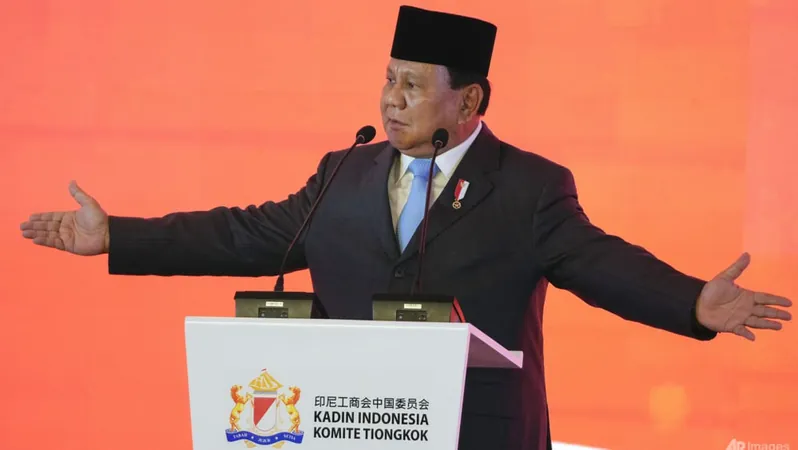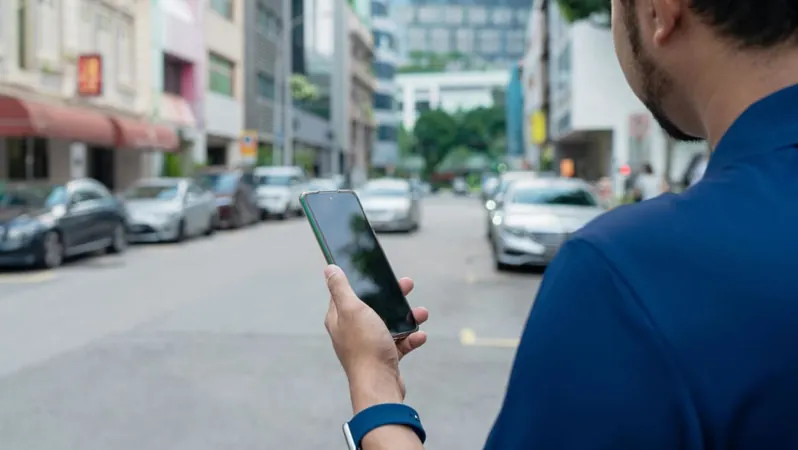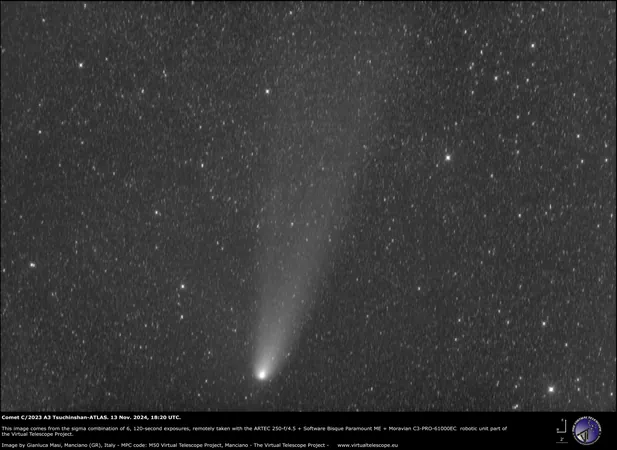
Prabowo Subianto's Bold Diplomatic Moves: What His Inaugural Visits to China and the US Reveal About Indonesia's Future on the Global Stage
2024-11-15
Author: Mei
In a whirlwind of international diplomacy, Indonesia’s newly inaugurated president Prabowo Subianto has made significant waves with his maiden overseas visits just weeks into his presidency. The eyes of the world were on him as he navigated meetings in both China and the United States, garnering attention for both commendable achievements and areas of concern.
At the ongoing Asia Pacific Economic Cooperation Summit in Peru, Prabowo’s tours have elevated Indonesia’s status among major world players, igniting a sense of pride among Indonesians witnessing their leader interact with prominent global figures. His diplomatic endeavors reflect a shift in Indonesia's approach to foreign relations under his administration, marking a departure from the previous president, Joko Widodo, who often delegated diplomatic matters to seasoned professionals.
The China Visit: A Mixed Bag of Agreements and Controversy
Prabowo’s inaugural trip took him to China, where discussions with Chinese President Xi Jinping and other top officials resulted in several agreements, including a significant maritime pact. However, a controversial line in a joint statement about joint development in disputed maritime areas raised eyebrows among foreign policy analysts, contrasting sharply with Indonesia's long-held stance of being a non-claimant in the South China Sea.
Following the backlash, Indonesia’s foreign ministry quickly asserted that the country’s sovereignty remains intact and reiterated that Chinese claims lack international legal validity. Dr. Shafiah Muhibat, a noted China expert, highlighted concerns over how such wording made it into the official statement, raising questions about diplomacy protocol and the oversight during negotiations.
Prabowo's entourage included key ministers, suggesting a broader collaborative effort, yet many experts argue that a more cohesive diplomatic strategy involving the entire Indonesian diplomatic corps is vital for success.
Engagement with the US: A Strategic Partnership
Subsequently, Prabowo visited the United States, marking a historic moment as both nations commemorate 75 years of diplomatic relations. The joint statement with the US emphasized crucial partnerships around food security and renewable energy, alongside steadfast support for international maritime laws as outlined in the 1982 United Nations Convention on the Law of the Sea (UNCLOS). Analysts noted a stark contrast between this statement and the one made with China, illustrating a potential diplomatic tightrope that Indonesia must navigate going forward.
During these engagements, Prabowo showcased a personal touch, sharing video interactions with US figures, including a notable zoom call with Donald Trump, where he expressed eagerness to connect—a reaction that garnered mixed responses on social media, highlighting a potential vulnerability in his diplomatic approach.
The Road Ahead: Can Prabowo Truly Balance Global Ties?
As Prabowo continues his two-week diplomatic tour, including a stop at the upcoming G20 Summit in Brazil, questions linger regarding the effectiveness of these joint statements in practice and their implications for Indonesia’s sovereignty. Experts like Associate Professor Dinna Prapto Raharja urge the need for a collaborative approach where foreign policy is not purely reliant on the president’s will, but rather reflects a cohesive national agenda.
While Mr. Prabowo’s energetic approach to diplomacy has undoubtedly put Indonesia in the limelight, the challenge will lie in translating these high-profile engagements into tangible benefits for the nation. The anticipated implementation of agreements with both China and the US remains to be seen, as does Indonesia's strategic navigation of competing interests in the region.
Prabowo’s diplomatic debut encapsulates a significant moment for Indonesia, where the potential for leadership on the global stage is met with the complexity of international politics. As he forges ahead, the question remains: Can President Prabowo Subianto sustain this momentum and truly redefine Indonesia’s role in a rapidly evolving geopolitical landscape?





 Brasil (PT)
Brasil (PT)
 Canada (EN)
Canada (EN)
 Chile (ES)
Chile (ES)
 España (ES)
España (ES)
 France (FR)
France (FR)
 Hong Kong (EN)
Hong Kong (EN)
 Italia (IT)
Italia (IT)
 日本 (JA)
日本 (JA)
 Magyarország (HU)
Magyarország (HU)
 Norge (NO)
Norge (NO)
 Polska (PL)
Polska (PL)
 Schweiz (DE)
Schweiz (DE)
 Singapore (EN)
Singapore (EN)
 Sverige (SV)
Sverige (SV)
 Suomi (FI)
Suomi (FI)
 Türkiye (TR)
Türkiye (TR)